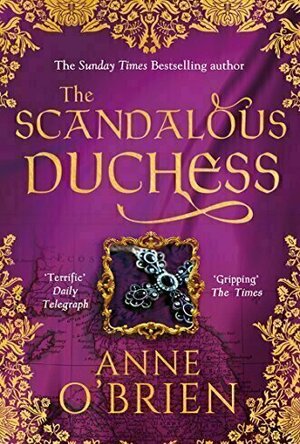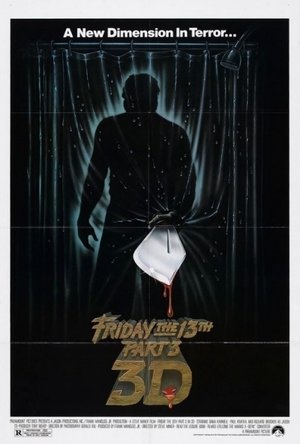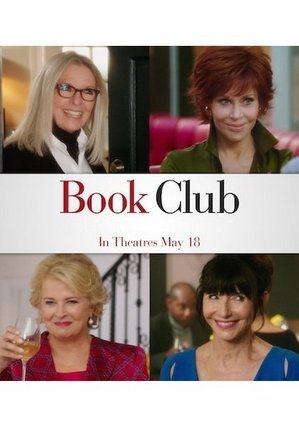Deborah (162 KP) rated The Scandalous Duchess in Books
Dec 21, 2018
O'Brien's latest offering gives us the tale of Katherine de Swynford (nee de Roet), famous (or perhaps infamous!) as the mistress and later wife of John of Gaunt, Duke of Lancaster (and if you didn't know that he marries her, I think the title might give it away, so I don't think it's a spoiler!). There actually isn't all that much known about Katherine herself, which may seem surprising. I'm sure there may be other novels about her, but by far the best known is Anya Seton's 'Katherine' which might well give another author pause when looking to cover the same ground. The fact that so little is really known about her life does give an author a fair bit of freedom. It must be fairly obvious that there is a love story in there - she was his mistress for many years and then he chose to marry her, which I doubt anyone would have expected.
The novel's subtitle give it as 'the forbidden affair that started the Tudors' - who of course were descended from the legitimated Beaufort line.... but then again Joan was also the maternal grandmother of Edward IV and Richard III! The benefit of hindsight can show us clearly how a seemingly small decision, such as Katherine's decision to acquiesce in becoming John of Gaunt's mistress, can have such a huge impact - namely being a large factor in the Wars of the Roses!
I found this a well written and entertaining novel and I do enjoy my historical fiction! If you've read O'Brien before, I think you'll like this and if not I would recommend giving her a try. I find her writing far superior to the much touted Philippa Gregory.
LeftSideCut (3776 KP) rated Friday the 13th Part III (1982) in Movies
Aug 4, 2020
The main issue is the pacing and dialogue. I always found Part 2 Jason to be pretty intimidating, almost like a feral animal, but this time around, he's sneaking about Higgin's Haven, causing all kinds of hijinks and skulking in the distance. Leave that shit to Michael Myers and give me the Jason that's an unstoppable bull in a china shop!
This approach to Jason means that there is a ludicrous number of fake out scares in the first half of the film. It becomes trying pretty quickly.
The script is absolutely piss poor, no two ways about it - although I do appreciate the more frequent attempts at humour than what came before. Some of the characters are memorable in their own way - Shelley and Fox to name a couple, but none of the characters are developed much - watching the special features, it was made clear that the use of 3D and the increased technical issues that came with it took up most of the attention whilst filming - a classic case of actors doing the best with what they were given, which wasn't much in this instance!
Although all of this ensures that the end product doesn't begin to touch the first two in terms of quality, there are still some positives of course. This was the entry that gave Jason his iconic hockey mask for starters, and the make up work done on actor Richard Brooker is impressive even today. The practical work put into the films many death scenes is easy to appreciate, and the overall look of the film is pure 80s slasher, which is never a bad thing.
It's not the best film in the series, and certainly not the worst, and if you like slashers as much as I do, then there's definitely something for you here, even if the end result feels a bit aimless.
Deborah (162 KP) rated Richard III: The King in the Car Park in Books
Dec 21, 2018
I will admit that with pro-Ricardian sympathies I was probably never going to like this book, but it is a bit of a mess and feels like another case of jumping on the bandwagon. There is no index, no footnotes/endnotes and only a partial list of sources, which is enough to raise questions about academic rigour. If you are going to publish opinions, particular in The Great Debate, these really should be backed up by factual evidence. I think I am most irked by the hypocrisy of Mr Breverton telling us at one point that he is going to take a fresh impartial look at the subject and then immediately showing us exactly which colour he prefers his roses.
His list, near the back of the volume, of all the 'crimes' he thinks Richard III was guilty of really does teeter on the brink of blindness and absurdity. Apparently he is guilty in the case of the Earl of Warwick, son of Richard's older brother, George of Clarence, but whose claim to the throne was barred by his father's attainder (always reversible, but Warwick was then only a child of about 8 years). I'm pretty sure this Warwick was sent to Sheriff Hutton Castle to be brought up with other young persons, as befitted his status by Richard. Of course, as soon as Henry Tudor usurped the throne, this boy was locked up in the Tower only to be executed later on a trumped up charge. I think I know who the guilty party is in that case.
That is my frank opinion on this volume; I will now expect said author to savage me as he has everyone else on Amazon who has pointed out the self-evident shortcomings in this work.
Deborah (162 KP) rated The Crowland Chronicle Continuations, 1459 1486 in Books
Dec 21, 2018
This volume was produced to mark the 500th anniversary or the writing of the Continuation and is only the second English translation and publication of it.
The book itself is a very scholarly book and the editors seem to assume that a reader will have a working knowledge of Latin as in the introductory section there are numerous quotations in Latin which are not then rendered in English. The introductory section is quite in-depth and indeed takes up more than half of the pages in the volume! A lot of it I will admit to having found rather heavy going, although the information I did glean was interesting and useful. I was not particularly aware of the history of the original manuscript, in that is had been badly damaged in a fire and much of the current text was therefore taken from a copy of the text written as part of the earlier English publication. There are some plates which show some of the surviving pages of the manuscript, but not all pages have survived, so the current editors have used the earlier transcript as a starting point. There is also an interesting and useful consideration of the authorship of the Continuation.
The Continuation itself takes up just under half of the volume and the original Latin text is printed on one side the the English translation on the facing page. I found the translation quite readable, even if it did feel like a bit of a whirlwind tour of events! Oddly, the national political picture breaks off several times and we have inserted a sort of obituary of Abbots of Croyland who happened to die as this point in the main narrative.
What I think I would like to see, and what would be of interest to a general historical reader, would be a publication of the English translation with an introduction and analysis geared more to the general reader than to the academic scholar.
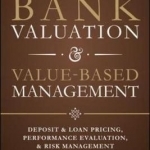
Bank Valuation and Value Based Management: Deposit and Loan Pricing, Performance Evaluation, and Risk
Book
The definitive guide to complying with the brand-newBasel III requirements and creating sustainable...
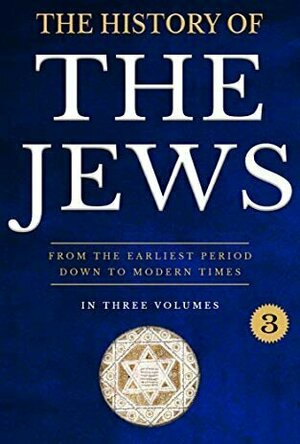
The History of the Jews
Book
The History Of The Jews: From The Earliest Period Down To Modern Times, In Three Volumes. (Vol. 3)...
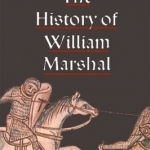
The History of William Marshal
Book
The History of William Marshal is the earliest surviving biography of a medieval knight - indeed it...

Artemis Director's Viewfinder
Photo & Video and Utilities
App
Artemis Director's Viewfinder reproduces any camera, aspect ratio and lens combination. Included is...

Artemis HD
Photo & Video and Productivity
App
THIS VERSION OF ARTEMIS IS SPECIFICALLY FOR IPAD USERS ONLY. FOR THE UNIVERSAL VERSION OF ARTEMIS...
Bob Mann (459 KP) rated Book Club (2018) in Movies
Sep 29, 2021
The action – if we can stretch the use of English that far – revolves around the four middle-class white ladies (this film challenges neither class nor racial divides) who meet periodically with copious quantities of wine and goat-cheese stuffed tomatoes to discuss a book. Hotel owner Vivian (Jane Fonda, “Klute”, “On Golden Pond”) is making lots of love but is reluctant to commit to it herself; Diane (Diane Keaton, “”Annie Hall”, “Something’s Gotta Give”) is recently widowed and struggling against being pigeon-holed as an ‘old duffer’ by her two daughters; Sharon (Candice Bergen, “Soldier Blue”, “Miss Congeniality”) has devoted her life to her career as a high court judge at the expense of a physical relationship (“What happens to a vagina that hasn’t been used in 18 years?!”); and Carol (Mary Steenburgen (“Back to the Future Part III”) is in a sexless marriage with her recently retired husband Bruce (Craig T Nelson, “Get Hard“, “Poltergeist”).
Vivian introduces the book club to “50 Shades of Grey” and the book influences everyone’s lives in different ways.
What ensues is 100 minutes of double entendres (“You have a lethargic pussy” says a veterinarian… you get the level) as the four separate stories (bump and) grind towards their separate conclusions. There are one or too laugh-out-loud moments but the majority of the screenplay is merely smile-worthy: “Mostly harmless” as Douglas Adams would have said.
What IS good, which is the reason my rating won’t have a “1” in it, is that it does give a reason to see some of our more senior actors and actresses strut their stuff again on the main stage.
In terms of the lead performances, while Steenburgen is good, it is Candice Bergen who impresses most as a fine comic actress. More please! Fonda and Don Johnson (“Miami Vice”) were supposed to be a hot couple, but their acting to me appeared false and their chemistry non-existent: did they have a fight outside the trailer every morning? And Diane Keaton was… well… Diane Keaton: the ditzy old hippy shtick wore a bit thin for me by the end.
We also have appearances from the great Andy Garcia (“The Godfather Part III”, “Oceans 11”), Wallace Shawn (just SOOooo good as the sleazy mob lawyer in “The Good Wife/Fight”) and (best of all) Richard Dreyfuss (“Jaws”, “Close Encounters of the Third Kind”). Dreyfuss has merely a cameo, but I was just longing for more of his character.
Alicia Silverstone (“Clueless”, “Batman & Robin”) even turns up, but her character (together with her sister played by Katie Aselton) is so annoying and vacuous that it’s not easy to warm to her.
A standout – but not in a good way – is the special effects, with some of the dodgiest green screen work I’ve seen in many a year. Think “North by Northwest” quality….. but that’s nearly 60 years old!
So, it’s not a film I would run to see again, but I’m not going to pan it completely, since if you are of the demographic that enjoys such films, you may really enjoy this one. It reminds me somewhat of “It’s Complicated” – and that’s one of my wife’s personal favourites! It also addresses some key topics that will be of relevance to a senior audience, not normally addressed by movies: male impotence resulting from self-doubt; the need to keep a young and ever-inquiring mind; and the good times to be had by getting out and back in the game again after bereavement (yes, you know who you are and you know I’m addressing YOU here!).
